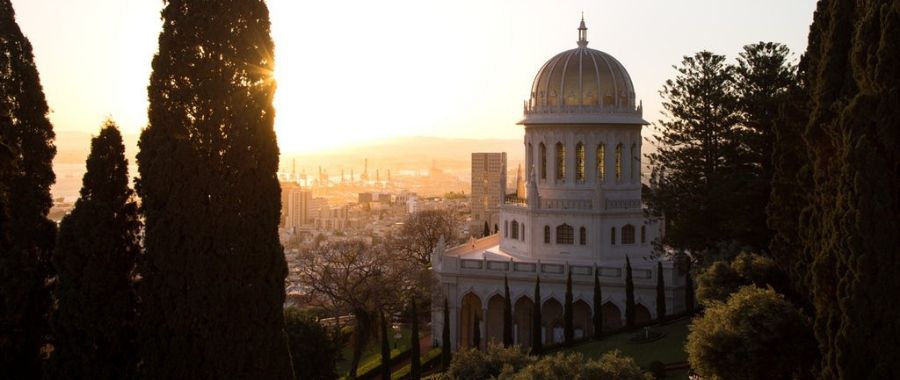The views expressed in our content reflect individual perspectives and do not represent the authoritative views of the Baha'i Faith.
Guidance provided by the Baha’i writings shapes Baha’i life. This includes not only beliefs, but also actions and practices, especially in the form of spiritual laws.
For the most part, Baha’u’llah set forth the Baha’i laws in his Most Holy Book. But did you know that a number of Baha’i laws preexisted as laws of the Bab, even before the advent of Baha’u’llah?
Of course, Baha’u’llah exercised his discretion over which of the Bab’s laws to adopt and adapt for Baha’is today, as Baha’u’llah himself explained:
Our Exalted Herald [the Bab]—may the life of all else besides Him be offered up for His sake—hath revealed certain laws. However, in the realm of His Revelation these laws were made subject to Our sanction, hence this Wronged One hath put some of them into effect by embodying them in [The Most Holy Book] in different words. Others We set aside. He holdeth in His hand the authority. He doeth what He willeth and He ordaineth whatsoever He pleaseth. He is the Almighty, the All-Praised. There are also ordinances newly revealed. Blessed are they that attain. Blessed are they that observe His precepts. – Tablets of Baha’u’llah, p. 132.
So let’s take a look at just a few examples of Baha’i laws with their origins in the Persian Bayan and elsewhere in the Bab’s teachings. Each of these explanatory “Notes” below are quoted from the authorized translation and commentary of Baha’u’llah’s Most Holy Book, preceded by Baha’u’llah’s original law in capitalized form.
The Baha’i Calendar
Note 147. THE NUMBER OF MONTHS IN A YEAR, APPOINTED IN THE BOOK OF GOD, IS NINETEEN: The Baha’i year, in accordance with the [Bab’s] Badi calendar, consists of nineteen months of nineteen days each, with the addition of certain intercalary days (four in an ordinary year and five in a leap year) between the eighteenth and nineteenth months in order to adjust the calendar to the solar year. The Bab named the months after certain attributes of God. The Baha’i New Year, Naw-Ruz, is astronomically fixed, coinciding with the March equinox. – The Most Holy Book, p. 228.
The Baha’i Nineteen-Day Feast
Note 82. VERILY, IT IS ENJOINED UPON YOU TO OFFER A FEAST, ONCE IN EVERY MONTH: This injunction has become the basis for the holding of monthly Baha’i festivities and as such constitutes the ordination of the Nineteen Day Feast. In the Arabic Bayan the Bab called upon His followers to gather together once every nineteen days to show hospitality and fellowship. Baha’u’llah here confirms this and notes the unifying role of such occasions. – Ibid., p. 202.
The Baha’i Nineteen-Day Fast
Note 26. AND AT ITS CLOSE HAVE DESIGNATED FOR YOU NAW-RUZ AS A FEAST: The Bab introduced a new calendar, known now as the Badi or Baha’i calendar. According to this calendar, a day is the period from sunset to sunset. In the Bayan, the Bab ordained the month of Ala to be the month of fasting, decreed that the day of Naw-Ruz should mark the termination of that period, and designated Naw-Ruz as the Day of God. Baha’u’llah confirms the Badi calendar wherein Naw-Rúz is designated as a feast. Naw-Rúz is the first day of the new year. It coincides with the spring equinox in the northern hemisphere, which usually occurs on 21 March. – Ibid., p. 177.
The Baha’i Prayer for the Dead
Note 11. SIX SPECIFIC PASSAGES HAVE BEEN SENT DOWN BY GOD, THE REVEALER OF VERSES: The passages that form part of the [Baha’i] Prayer for the Dead comprise the repetition of the greeting “Allah-u-Abha” (God is the All-Glorious) six times, each followed by nineteen repetitions of one of six specifically revealed verses. These verses are identical with those in the Prayer for the Dead revealed by the Bab in the Bayan. Baha’u’llah added a supplication to precede these passages. – Ibid., p. 170.
Use of Pulpits Forbidden
Note 168. YE HAVE BEEN PROHIBITED FROM MAKING USE OF PULPITS … : These provisions have their antecedent in the Persian Bayan. The Bab forbade the use of pulpits for the delivery of sermons and the reading of the Text. He specified, instead, that to enable all to hear the Word of God clearly, a chair for the speaker should be placed upon a platform. – Ibid., p. 237.
This Baha’i law, which originated with the Bab, also alludes to the fact that Baha’is have no clergy, and therefore do not elevate any particular believer above any other.
The foregoing list of Baha’i laws based on prior laws ordained by the Bab is not exhaustive – other such laws exist as well. For instance, the late Baha’i scholar Dr. Ahang Rabbani identified thirty-two laws of the Bayan reflected in The Most Holy Book.
This short list of examples shows the influence of the Bab’s laws on contemporary Baha’i life. Baha’u’llah has described, in an exquisite metaphor, the spiritual and social significance of all of the laws he promulgated:
Think not that We have revealed unto you a mere code of laws. Nay, rather, We have unsealed the choice Wine with the fingers of might and power. To this beareth witness that which the Pen of Revelation hath revealed. Meditate upon this, O men of insight! – Ibid., p. 21.
















Comments
Sign in or create an account
Continue with Googleor